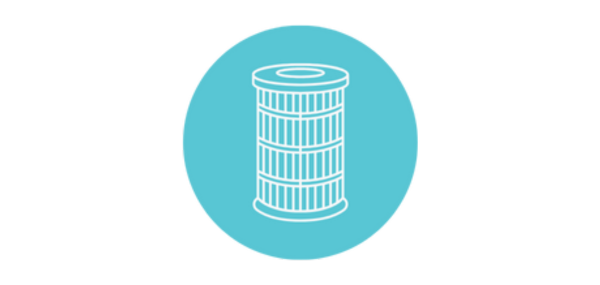

Seeing Through the Fog: What Water Sellers Should—and Shouldn’t—Say
Working closely with scientists—and just as importantly, listening to our community—has helped me step out of the marketing haze that too often clouds our industry. For years, I’ve watched as fear-based messaging and overpromising claims have flooded the water space, leaving people unsure of what to trust. From this clearer place, I want to speak openly about what our role is as water sellers—and what it isn’t.
When Product Sellers Become Health Advisors
Most companies in the water industry are passionate. That’s a good thing. Passion has brought about innovation, driven cleaner technologies, and helped many people access safer, better-tasting water. But passion isn’t permission to overstate what we offer.
The truth is, we’re not health practitioners—and we shouldn’t act like we are. Our job isn’t to diagnose, treat, or promise health miracles. It’s to offer well-tested tools that support your health decisions. That’s a very different role.
If you’re concerned about a specific health issue—chronic fatigue, digestion, skin health—your first step should be a trained health professional who understands your personal context. Water, even in its most enhanced or purified form, isn’t a cure-all. And suggesting otherwise can distract people from getting the help they actually need.
Fear Sells Fast—but Costs More
Scroll through social media or click through a few websites, and you’ll likely stumble across horror stories: tap water teeming with invisible toxins, mysterious links between contaminants and disease, and miracle minerals that promise to reverse aging. These messages are attention-grabbing—because fear sells.
But fear also has side effects.
We’ve seen it in our own customer conversations: people overwhelmed by what they’ve read online, afraid to drink their water, unsure of what’s real. Ironically, fear can lead people to drink less water, not more. And that’s the opposite of what we should be encouraging.
Water is essential. It should be approached with respect and care—but also with calm clarity. Amplifying anxiety just to increase sales may yield short-term wins, but in the long run, it erodes trust. Worse, it can make people afraid of something as fundamental as hydration.
Science Can Be Spun
Early in my journey, I leaned heavily on studies to back our offerings. Peer-reviewed science felt like a safety net—objective, reliable, unarguable. But I’ve learned that even research can be cherry-picked. Some findings are overstated in marketing. Others are taken completely out of context. Sometimes a study that looks impressive at first glance turns out to be based on small sample sizes, unrealistic conditions, or funding from vested interests.
That’s why we’ve changed our approach. Today, we rely on a blend of credible data, real-world experience, and conversations with both scientists and everyday users. We ask: Is it effective? Does it actually make a difference in a family’s home? Is it easy to use and maintain? Does it make sense for the New Zealand context?
We’re still curious. Still learning. But we’re no longer chasing headlines.
Our True Job
What do we actually do, then?
We select only a handful of water systems—ones that make sense for most New Zealand households. We don’t stock every new gadget or jump on every trend. We focus on long-term filtration solutions that are well-built, reliable, and make a practical difference. We look for systems that remove the stuff you don’t want without turning water into something unrecognizable.
We test. We trial. We stand behind what we offer. And we do our best to make the whole process—selection, installation, maintenance—as straightforward as possible.
That’s it. That’s our job.
Your Health Is Personal
One of the hardest—and most freeing—lessons we’ve learned is this: your health is not our business. It’s yours. And if you’re not sure what your body needs, the best person to ask is your doctor, not someone selling you a filter.
The internet is full of content that makes you question things you’d never worried about before. And it’s easy to get swept up in that. But if something online is suddenly making you feel broken, toxic, or in need of a quick fix—it’s okay to step back. Your body isn’t a problem to solve; it’s a whole system that deserves care, not panic.
If you’re concerned about aging, and you notice your laugh lines deepening—keep laughing. That’s health. If you’re worried about fatigue, start with sleep, food, hydration, and movement. And if you're looking to support your wellbeing with better water, we’re here to help—but never to diagnose.
Closing Thoughts
We’re committed to getting clearer.
Water is sacred. Selling water products should honor that—not exploit it. It’s taken time and humility to peel back the layers of hype and get to the heart of what we’re really offering. But the view from here is better: less fog, more trust.
We’ll keep listening. We’ll keep learning. And we’ll continue to remind you: drink water because it sustains life.








